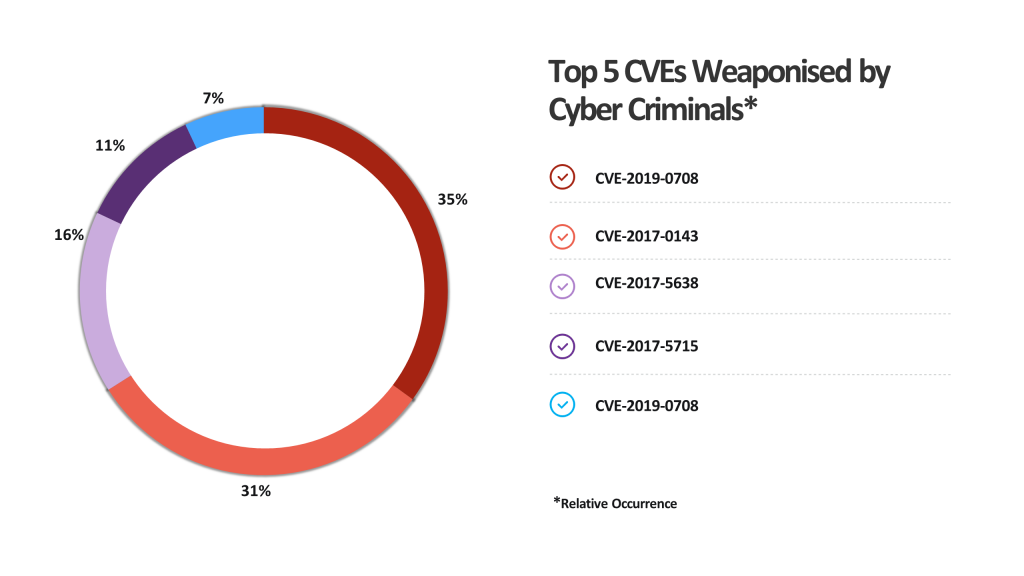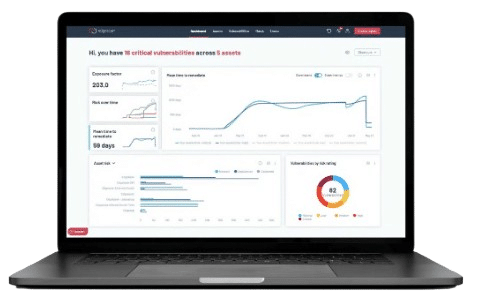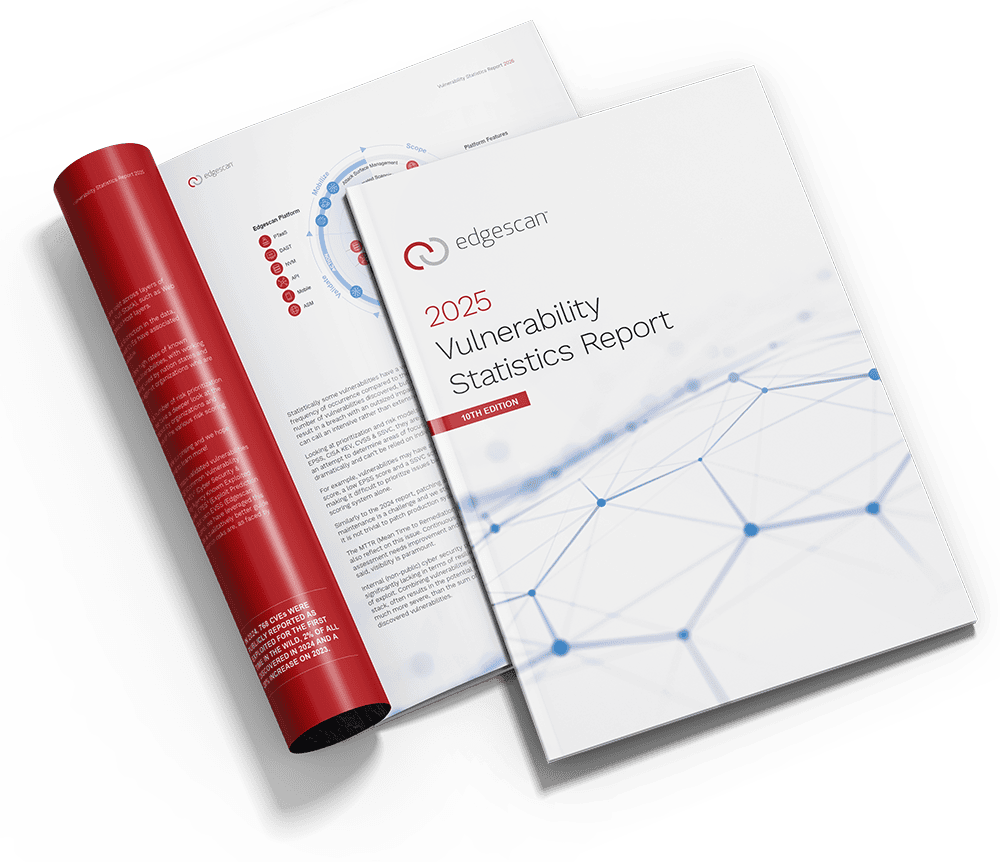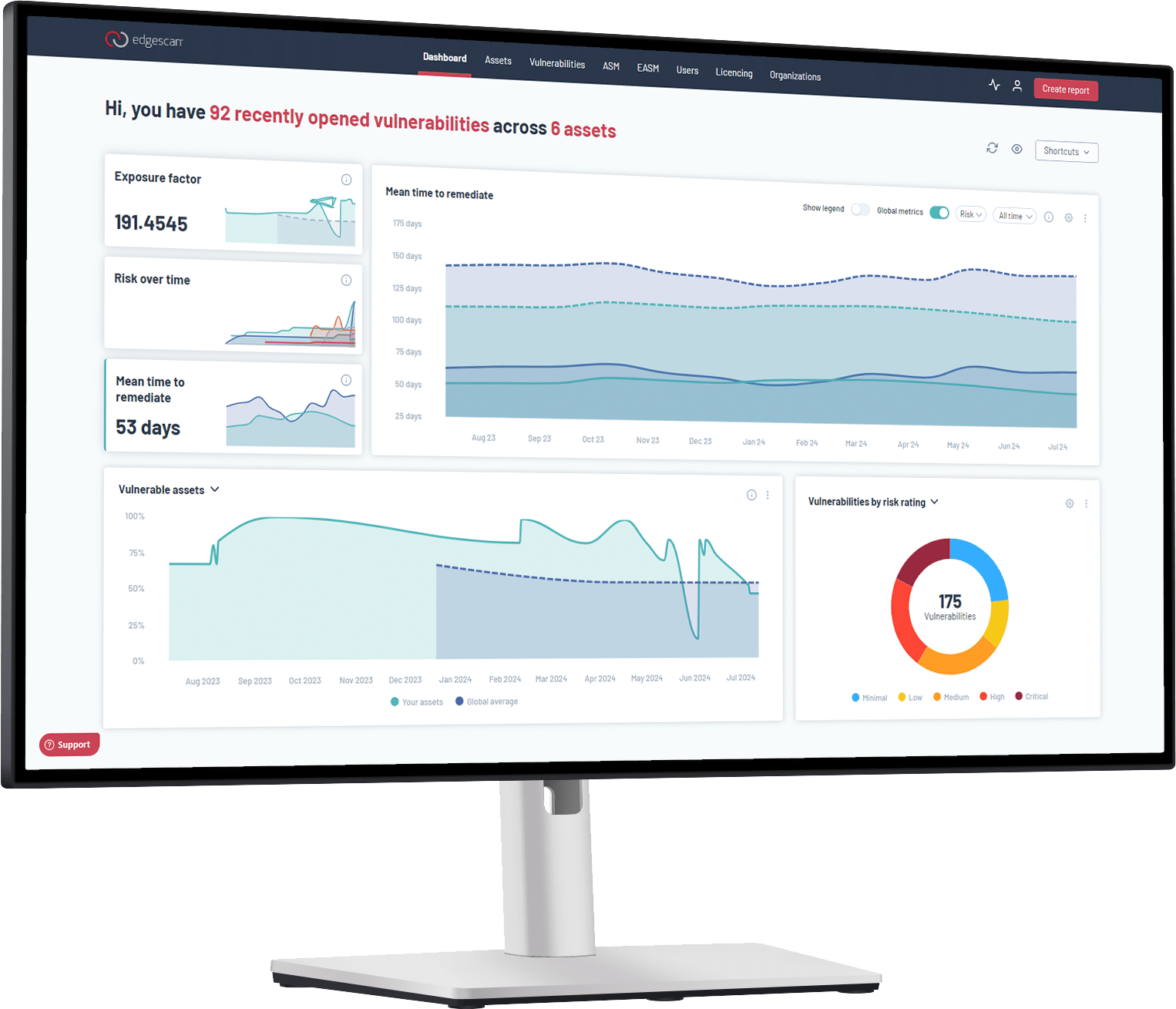As we put the finishing touches to the Edgescan 2021 Vulnerability Statistics Report it has become clear that criminals are leveraging known, unpatched vulnerabilities in order to launch attacks on unsuspecting organisations. We have compiled a list of the top 5, the list includes the CVE, its impact and the threat actors taking advantage of the vulnerabilities.
At Edgescan, we do what we can to inform the global security community so knowing this list of the Top 5 CVEs Weaponised by Cyber Criminals is useful. The Edgescan 2021 Stats Report will be published in February 2021, register your interest to receive a copy straight to your inbox when it’s released.

| 1. CVE-2019-0708 - Often known as the BlueKeep |
| CVSS 2 Score |
| 10 |
| Impacted Systems |
| Microsoft Windows |
| Description |
| A remote code execution vulnerability exists in Remote Desktop Services formerly known as Terminal Services when an unauthenticated attacker connects to the target system using RDP and sends specially crafted requests, aka ‘Remote Desktop Services Remote Code Execution Vulnerability’. |
| Impact |
| Someone can use Remote Desktop feature of Windows to login onto your pc and take control. There is total information disclosure, resulting in all system files being revealed |
| Threat Actor |
| Kelvin SecTeam (Venezuela, Colombia, Peru) |
| Reference Link |
| CVE-2019-0708 : A remote code execution vulnerability exists in Remote Desktop Services formerly known as Terminal Services when an unau (cvedetails.com) |
| 2. CVE-2017-0143 - DOUBLEPULSAR Payload use this CVE |
| CVSS 2 Score |
| 9.3 |
| Impacted Systems |
| Microsoft SMB |
| Description |
| The SMBv1 server in Microsoft Windows Vista SP2; Windows Server 2008 SP2 and R2 SP1; Windows 7 SP1; Windows 8.1; Windows Server 2012 Gold and R2; Windows RT 8.1; and Windows 10 Gold, 1511, and 1607; and Windows Server 2016 allows remote attackers to execute arbitrary code via crafted packets, aka “Windows SMB Remote Code Execution Vulnerability.” This vulnerability is different from those described in CVE-2017-0144, CVE-2017-0145, CVE-2017-0146, and CVE-2017-0148. |
| Impact |
|
| Threat Actor |
| APT3 (China), Calypso (China) |
| 3. CVE-2017-5638 |
| CVSS 2 Score |
| 10 |
| Impacted Systems |
| Apache Struts |
| Description |
| The Jakarta Multipart parser in Apache Struts 2 2.3.x before 2.3.32 and 2.5.x before 2.5.10.1 has incorrect exception handling and error-message generation during file-upload attempts, which allows remote attackers to execute arbitrary commands via a crafted Content-Type, Content-Disposition, or Content-Length HTTP header, as exploited in the wild in March 2017 with a Content-Type header containing a #cmd= string. |
| Impact |
|
| Threat Actor |
| Lazarus Group (North Korea) |
| 4. CVE-2017-5715 - Also known as Spectre |
| CVSS 2 Score |
| 4.7 |
| Impacted Systems |
| ARM, Intel |
| Description: |
| Systems with microprocessors utilizing speculative execution and indirect branch prediction may allow unauthorized disclosure of information to an attacker with local user access via a side-channel analysis. |
| Impact: |
| A local user can run specially crafted code to cause the CPU to speculatively execute an indirect branch to leak memory contents from another process into a CPU cache and then read the contents of the cache . A local user can view arbitrary virtual memory contents on the target CPU device |
| Threat Actor |
| Unknown |
| 5. CVE-2017-10271 - Used by CyrptoMiners |
| CVSS 2 Score |
| 5 |
| Impacted Systems |
| Oracle WebLogic Server |
| Description |
| A remote user can exploit a flaw in the Oracle WebLogic Server WLS Security component to gain elevated privileges. |
| Impact |
|
| Threat Actor |
| Rocke Gang (Chinese Cybercrime) |
| Reference Link |
| Oracle WebLogic Server Flaws Let Remote User Gain Elevated Privileges, Modify Data, and Deny Service on the Target System - SecurityTracker |
Visit our Vulnerability Statistics Resources for more information and to view the Edgescan 2020 Stats Report. Register your interest to receive one of the first copies of the 2021 Report, due in February 2021.






